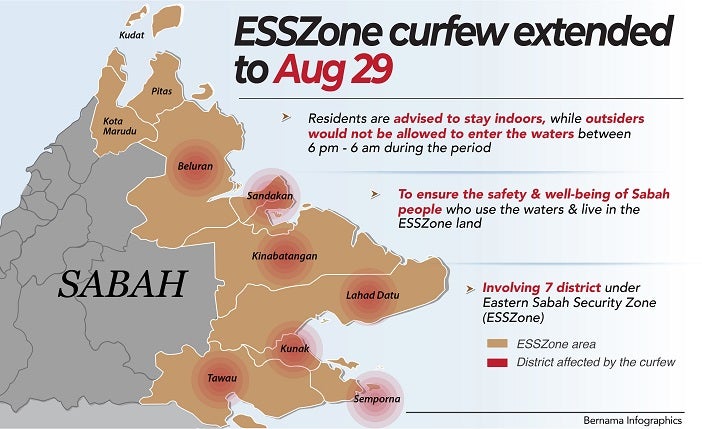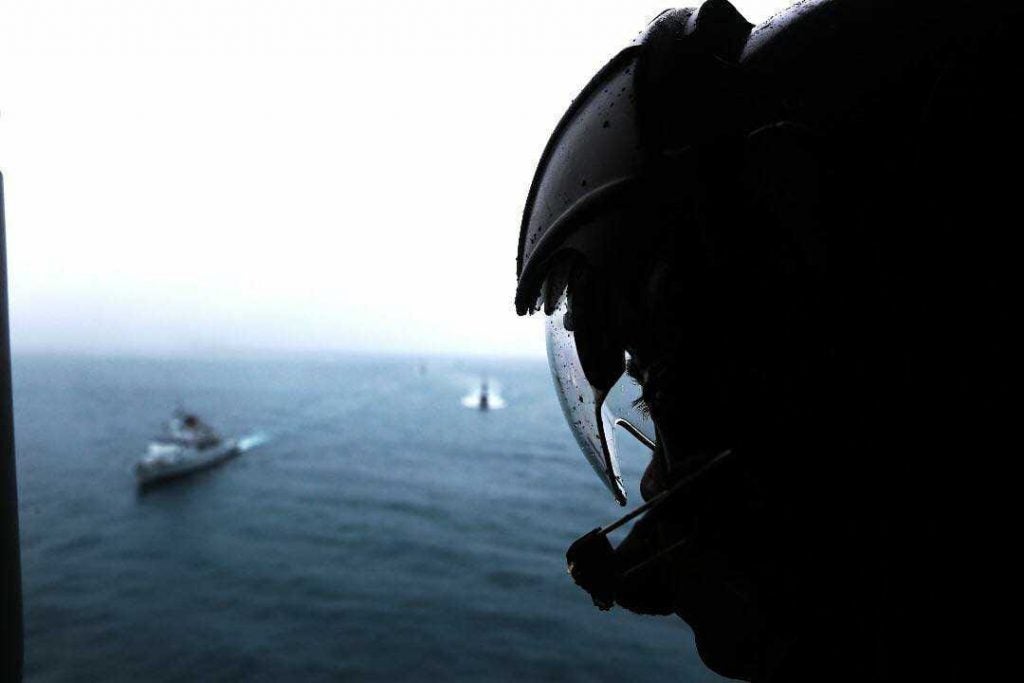Malaysian Forces On Alert For Foreign ‘Disruption’ Of Heated State Polls
The commander of the Eastern Sabah Security Command (ESSCOM), Datuk Ahmad Fuad Othman, has said that voters in the Sabah state elections on Saturday need not fear going out to vote, with ten specialized teams of ESSCOM personnel deployed to enhance security during the election period.
“I give you my assurance; Go out and vote in big numbers. Let the security forces and I in ESSZone (the Eastern Sabah Security Zone) do our job,” he remarked to reporters present at the early voting center at the 17th Battalion General Operations Force camp at Lahad Datu on 22 September. “All air, land and sea (routes) are under watch and patrols have been intensified”, with him adding that 187 ESSCOM personnel were eligible to vote that day.
The reassurance came two days after the Sabah police commissioner, Datuk Hazani Ghazali, stated that the state police had received intelligence that “elements” from a neighboring country were planning an incursion into Sabah to disrupt the elections. Following the announcement, Chief of the Malaysian Armed Forces General Tan Sri Affendi Buang said that the armed forces would work with the police and other security forces to enhance the military-led Ops Benteng (Operation Levee)’s ability to secure the state’s sea and land borders and ensure the elections go smoothly.
Cross-border activity by terrorists, organized crime and regular citizens alike has been present throughout Sabah’s history owing to the porous borders between Malaysia, Indonesia and the Philippines, with the most infamous incident being the 2013 Lahad Datu incursion, which saw around 200 armed followers of the Sultanate of Sulu take over the small village of Tanduo in the east of the state in a bid to reassert the Sultanate’s claim to the state.
A breakdown in negotiations for their return to the Philippines resulted in fighting breaking out, resulting in the death of at least 56 Sultanate followers, 10 members of the Malaysian security forces (1 death was in a non-combat traffic accident) and six civilians. The incursion and its aftermath resulted in the creation of ESSZone and ESSCOM to secure the state’s eastern coast, with a 6pm-6am sea curfew in force throughout several coastal districts since July 2014.

The spectre of the incursion looms heavily over the election, with Datuk Mohamaddin Ketapi, current Lahad Datu Member of Parliament and candidate for the Segama state seat under police investigation over accusations that he described the incursion as a “farce” on the campaign trail.
The snap elections were called following the dissolution of the State Legislative Assembly on 30 July, after the leaders of both the governing coalition and the opposition claimed to have a majority to form a state government, starting a political crisis.
Other factors further complicating the situation include Philippines Foreign Secretary Teodoro Locsin Jr.’s recent statement that the government of the Philippines would not abandon its claim to Sabah, as well as an ever increasing amount of COVID-19 clusters appearing in the state, with one cluster attributed to a person smuggled into the state. Additionally, Anwar Ibrahim, leader of the Pakatan Harapan opposition coalition, claimed on Wednesday to have gained a parliamentary majority that would allow him to form a government, but his bid to hold an audience with the Yang di-Pertuan Agong failed after the Malaysian monarch was admitted to the National Heart Institute after complaining of feeling unwell.

